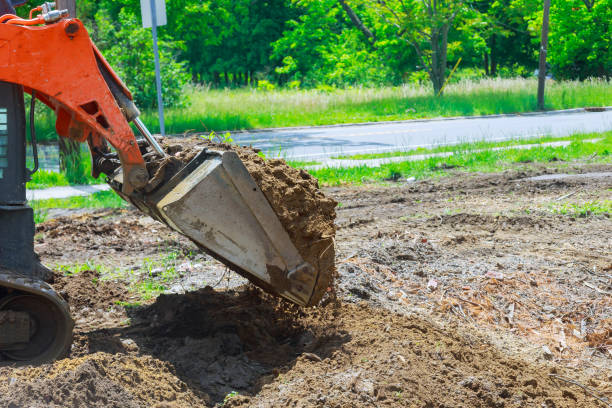Trails Carolina is an outdoor therapy program located in North Carolina’s scenic mountains that can help troubled teens overcome issues like depression, addiction and ADHD.
Recent allegations of abuse at this program are raising serious concerns. Our investigation will look into ways transparency, accountability, and reform can improve wilderness therapy industry practices.
The Wilderness as a Mirror
The wilderness provides teens with an invaluable opportunity for self-reflection and learning valuable life skills in a safe, supportive environment. Teens can observe their actions, behaviors, and thought processes more clearly – often providing new insight that allows them to understand any underlying causes that may have contributed to addictions such as depression or other problems they’re currently dealing with.
Not all wilderness therapy experiences are created equal, as evidenced by recent reports regarding Trails Carolina programs has made clear. Such reports remind parents to put participant wellbeing first when reviewing these programs.
At Trails Carolina, a qualified family therapist conducts an in-depth clinical assessment on every student upon arrival and on an ongoing basis during their program. Individualized treatment plans ensure each child is receiving top quality care; our Therapeutic, Wilderness, Residential and Academic teams monitor student progress regularly while working to address any remaining challenges that may arise.
Our program brings the best elements of wilderness therapy, clinical theory and evidence-based psychotherapies together in a residential and academic base camp setting to create an experiential and therapeutically grounded adventure therapy program. Students participate in age appropriate single gender groups to strengthen social and emotional skills, build self-esteem and learn new coping mechanisms in a natural setting. They’ll gain an in-depth understanding of traumatic experiences they’ve endured as well as gain knowledge regarding root causes of problem behavior while learning strategies to manage emotions more effectively in future.
Personal Challenges and Triumphs
Trails Carolina “Investigation” provides wilderness treatment programs to assist students in addressing various personal struggles and difficulties, from low self-esteem and academic performance issues, drug abuse, family conflict resolution and mindfulness and confidence exercises – Trails’ programs help students address them all! Equine therapy, individual and group therapy sessions as well as mindfulness and confidence exercises all offer newfound strength to overcome difficulties faced in daily life. Trails also offers residential base camp accommodations as well as structured school days so students can practice how to apply therapy skills in real world situations.
Grace’s success story at Trails’ wilderness therapeutic program speaks to its transformative power. Prior to coming, Grace struggled with oppositional behavior and severe anxiety; through her time at Trails, Grace learned healthy communication with both parents, management of symptoms, and improved grades – while weekly phone calls and family-focused approaches allowed Grace to build strong bonds with those she cared about most.
At times, wilderness programs take advantage of parents’ desperation by promising hopeful promises to transform your child’s life, only for this to only happen for an hour a week and with staff receiving minimum wages as their main source of care. At Trails, your child will benefit from our comprehensive treatment model as well as high levels of professionalism from an experienced team.
A Transformed Sense of Identity
Trails Carolina provides many students with a life-altering experience. Yet it should be noted that allegations of abuse have led mental health professionals to voice serious reservations about its lack of regulation and its alleged misdeeds. At its core, however, debate centers around striking an effective balance between providing rigorous therapy to address severe emotional and behavioral challenges while safeguarding rights and well-being for participants.
Trails Carolina has taken steps in response to allegations about their program by increasing transparency for parents, hiring a new chief executive and offering increased family therapy support and services; however, some families still feel as if they aren’t fully supported.
Trails Carolina staff is dedicated to the success of each student. Highly-trained wilderness therapists create an encouraging and welcoming atmosphere, beginning by outfitting newcomers with gear before introducing them to their group and peers.
Trails also offers customized programs to prepare students for life back at home by including extensive assessments and practice in their programs. Their multiple systems approach leverages both wilderness experiences and academic classroom settings to instil confidence in making healthy choices when returning home.
Environmental Stewardship
Trails Carolina’s wilderness therapy program fosters environmental stewardship by helping participants gain a greater appreciation of nature. They come to recognize its value in keeping a healthy ecosystem. Participants develop an affinity for wilderness that often mirrors their growing self-identity; helping them see its importance for caretaking the same way they would care for themselves.
Environmental stewardship refers to various activities and approaches people use to conserve, restore or sustainably utilize their environments. Such measures might include actions at both local and global scales – for instance limiting harvest of certain species, creating no-take terrestrial or marine parks to protect habitats with associated fauna and flora, removing invasive species, practicing “leave no trace” hiking techniques, planting trees for stream buffers restoration or adopting greener purchasing policies in businesses – but environmental stewardship can also form part of large-scale initiatives designed to address complex social-ecological problems.
At a civic level, environmental stewardship can be used to advocate for legislation and policies that promote environmental awareness. This can be accomplished either through activism or by informing others of issues affecting communities – though this can often be one of the more challenging forms of environmental stewardship, it remains essential for addressing our current ecological crisis.



